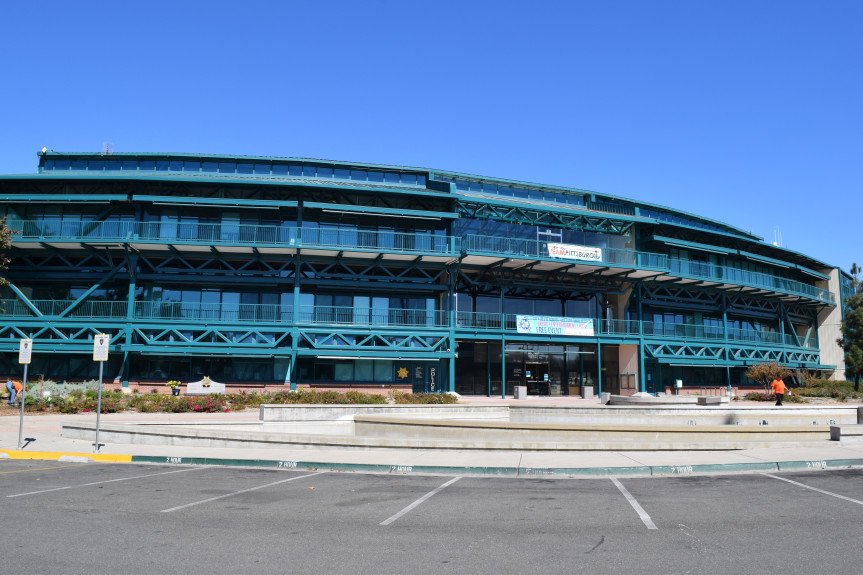
PITTSBURG — In a move to shape its economic future and investment in the community, Pittsburg formed an Enhanced Infrastructure Financing District, which sets aside a portion of property growth tax without creating new taxes for residents.
Pittsburg Community and Economic Development Director Jordan Davis said there are roughly 17 “illustrative projects” that the city wants to kick off. Those projects include improvements to the city’s marina and the Bliss Avenue to Garcia Avenue corridor, redevelopment of the former U.S. Steel site, enhancements to parks and major roadways, and pedestrian improvements at Old Town.
Related Articles
Gov. Newsom, Legislature tangle with construction unions over minimum wage
Brownstein: The GOP is still trying to repeal Obamacare
California reaches $321 billion budget deal boosting Hollywood
Antioch council approves budget as city grapples with deficit
Increased staffing becomes key priority during newest Richmond budget cycle
Davis said the projects are not a definitive list as actual investments will evolve over time, depending on funding availability, community needs and development of an area.
“I don’t think we have a project we’re focused on as much as a responsibility to the community that we’re focused on, and that’s figuring out ways to bring jobs,” said Davis in an interview with this news organization. “These are 17-ish projects that we see as things that we would do tomorrow if we had the money, but they are in no means guarantees, nor the only things that we would do with the money.”
The city emphasized that the Enhanced Infrastructure Financing District is not a new tax, nor does it increase taxes. It’s an earmarked portion of funds received from property taxes to develop various economic development infrastructure projects. According to Davis, a property tax is typically 1% of a home’s assessed value and the city receives about 18% of that 1%.
For the new district, only the increase in property tax revenue generated by new development within it will contribute to the fund. From the difference between the current property tax and the revenue collected at the baseline, 75% will go to the general fund and 25% will go to the Enhanced Infrastructure Financing District.
Pittsburg has been looking to form the financing district since 2023. In early June, the City Council approved the Infrastructure Financing Plan, which outlines how the district will fund projects to enhance the city’s economy.
Pittsburg is not the only city that has embarked on this route to generate funding for future public projects.
Brentwood formed the Public Financing Authority Board, which will recommend plans to fund infrastructure improvements in the city. Scotts Valley is also considering the establishment of the same type of district.
The goal of the Enhanced Infrastructure Financing District is not just to focus on infrastructure projects that can not only generate more economic-related development, but also enhance recreational opportunities, create jobs, and improve the overall quality of life for residents, said Davis.
“A lot of these infrastructure projects that we’ve talked about also have the potential, either directly or indirectly, to do things like improve air quality or to improve roads, things that people might experience daily,” he said.
According to a City Council staff report, the proposed area for the Enhanced Infrastructure Financing District is currently vacant, underutilized, or proposed for extensive development or redevelopment.
The areas are seen as having potential for property tax growth and where investment in infrastructure can possibly lead to substantial economic development benefits.
The areas make up about 34% of the city, or roughly 4,467 acres, said Pittsburg’s Economic Development Manager Robert Hicks-Carrera.
Hicks-Carrera said the city has been hosting numerous outreach events to educate the public about the Enhanced Infrastructure Financing District. Residents can also visit the city’s website to learn more, he added.
Currently, the newly opened Courtyard Marriott Hotel on Center Drive is the first property to contribute to the Enhanced Infrastructure Financing District. Looking ahead, several other significant developments are anticipated to bolster its coffers.
These include the Pittsburg Technology Park, which sits on the now defunct Delta View Gold Course; and numerous residential developments that were approved in the last decade, including Tuscany Meadows near Buchanan Road and the Faria/Southwest Hills Project around the Los Medanos Ridgeline, which will begin to contribute once homes are ready and occupied.
The Enhanced Infrastructure Financing District will be overseen by a Public Financing Authority, which consists of three councilmembers, the city treasurer, and one independent member of the public.
The financing authority will meet at least twice a year to ensure accountability and monitor progress.
Beyond the financing authority, Davis said there are numerous checks and balances in place, with the City Council being one of them.
“While we may develop an infrastructure financing plan and proposed projects, I can’t think of a situation where any projects done in the city are not going to have some sort of council approval,” said Davis. “They may be funded through the financing authority, but it’s likely going to have to go through the City Council for some type of approval or authorization.”